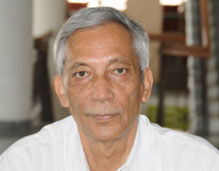The Perils of Strategic NCO and Tactical General
One unique aspect of the war waged by the US in Afghanistan is the concept of the ‘Afghan model’ of Special Forces directing a variety of remote firepower including unmanned and armed aerial vehicles. This has resulted in the idea of ‘tactical general and strategic corporal’. What it means is that NCOs (non-commissioned officers) as part of Special Forces have as important a strategic role to play and their role may well be equated with that of Generals who manage the tactical spectrum from the rear. This reversal of roles was much talked about and gave a unique position to the ubiquitous soldier and NCO.
This idea now stands discredited. With the insensitiveness shown in burning the Koran in a base which is being wound up followed by a soldier running amok and murdering 16 Afghan civilians, the hearts and minds of counterinsurgency have travelled back in a time machine. At one end of the spectrum bordering on arrogance and hubris is the demonstration of how even NCOs can now conduct decisive battles of firepower. This is a decentralisation cum democratisation of the conduct of war. On the other end is the stark reality that officers must be in charge to command the men in battle and control them with the tools of iron military discipline. War crimes cannot be swept under the carpet. Incidences such as the Abu Ghraib prisoner abuse in Iraq in 2004-2005 are seared in the public memory. No military can ever be proud of such behaviour. It is known that Calvin Gibbs, a staff sergeant in the US Army’s Fifth Styker Brigade, had recruited other soldiers to kill civilians, mutilate them and take their fingers, teeth and other body part as trophies of “savages”. In other instances, US soldiers are reported to have first killed their victims, then created the appearance of the victims having being armed enemy fighters.
So what is the lesson? First, in the much desired flat and non-hierarchical organisation characterised by better technology and communications, the leadership’s role cannot be made to appear to be outside the loop, thus justifying loss of influence over the behaviour of troops. Network-centric Warfare, RMA, etc. cannot be made excuses for such unbecoming acts. Officers have to lead by example. The job may be much harder due to wider dispersion and small teams working without officers. But what this demands is better selection and training of troops, and most importantly a high standard of military disciple and a deep internalisation of the general principles of the law of armed conflict (military necessity, distinction, proportionality, limitation, humanity and good faith). One regulation of the law on armed conflict (LOAC) is to ensure discipline in combat. It is obvious that terrorists, insurgents and militants are non-state actors and they need not follow the Geneva conventions. But this does not mean that soldiers undertaking counterinsurgency duty become psychopathic murderers. Every member of the Armed Forces is by virtue of the State’s ratification of the Geneva Convention subject to the LOAC. Acts such as wilful killing, torture, or inhuman treatment of any person is regarded as grave breaches.
The second lesson is how offices in command try and understand the people in a foreign land. Rather than giving long-winded and complicated justifications for brutal behaviour, it is better if these acts make the officer cadre more sensitive and accountable. Cultural and religious understanding is of extreme importance. In a war amongst the people, no military force can be successful in wining the peace if the soldiers show a hatred for the locals. It is possible that books such as the Clash of Civilizations by Samuel Huntington which predicted more violence with and within Islamic nations became best sellers for the wrong reasons. It needs to be appreciated that Adam Oler, a serving officer in the US Judge Advocate General Branch, has attempted to fill the gap by writing articles in professional US military journals like Parameters and Joint Forces Quarterly making the case for educating military leaders on the history of Islam. His conclusions are that there is no Islamic way of war.
Militaries need to be more sensitive and cautious to the culture and religion of the people. But the main tool of a professional military is discipline and the duty (dhrama) to obey the laws of combat and war. By outsourcing and allowing deviant and un-soldierly behaviour, battles may be won but not wars. Strategic NCO is well understood for the application of precision and long- range distant firepower. But for the moral and disciplined manifestation of a professional military, the General cannot outsource his strategic functions and duties to other ranks. Officers must own up to be officers. They need to be involved both at the strategic and tactical levels. War is a too serious a business to be left to the NCOs.








